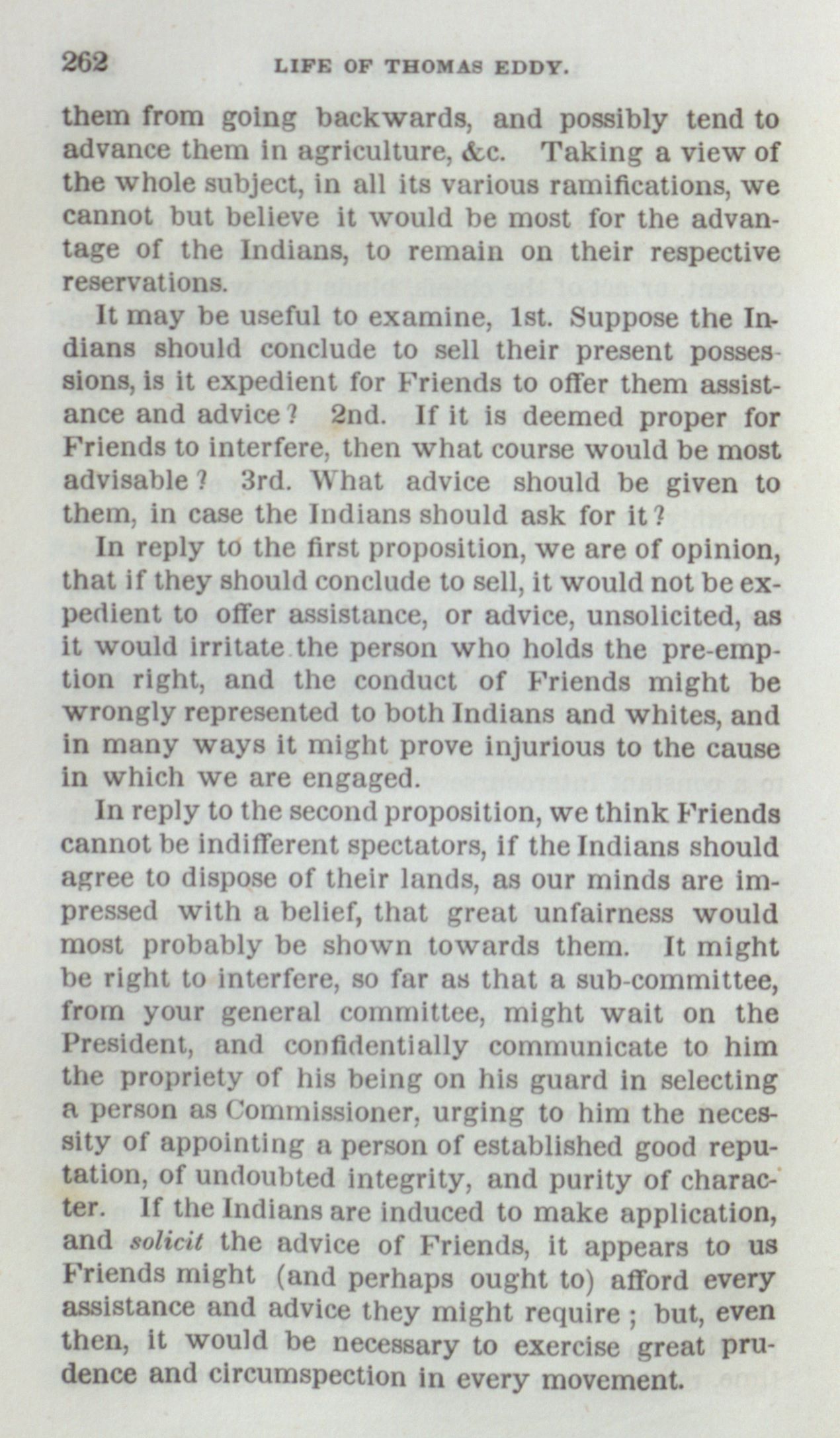them from going backwards, and possibly
tend to
advance them in agriculture, &c. Taking a view
of
the whole subject, in all its various ramifications,
we
cannot but believe it would be most for the advan-
tage of
the Indians, to remain on their respective
reservations.
It may be useful to examine, 1st. Suppose the In-
dians should
conclude to sell their present posses-
sions, is it expedient for
Friends to offer them assist-
ance and advice? 2nd. If it is deemed
proper for
Friends to interfere, then what course would be most
advisable? 3rd. What advice should be given to
them, in case the
Indians should ask for it?
In reply to the first proposition, we are of opinion,
that if they
should conclude to sell, it would not be ex-
pedient to offer
assistance, or advice, unsolicited, as
it would irritate the person
who holds the pre-emp-
tion right, and the conduct of Friends might
be
wrongly represented to both Indians and whites, and
in many
ways it might prove injurious to the cause
in which we are
engaged.
In reply to the second proposition, we think Friends
cannot be
indifferent spectators, if the Indians should
agree to dispose of
their lands, as our minds are im-
pressed with a belief, that great
unfairness would
most probably be shown towards them. It
might
be right to interfere, so far as that a
sub-committee,
from your general committee, might wait on
the
President, and confidentially communicate to him
the
propriety of his being on his guard in selecting
a person as
Commissioner, urging to him the neces-
sity of appointing a person
of established good repu-
tation, of undoubted integrity, and purity
of charac-
ter. If the Indians are induced to make
application,
and solicit the advice of
Friends, it appears to us
Friends might (and perhaps ought to)
afford every
assistance and advice they might require; but,
even
then, it would be necessary to exercise great pru-
dence
and circumspection in every movement.

